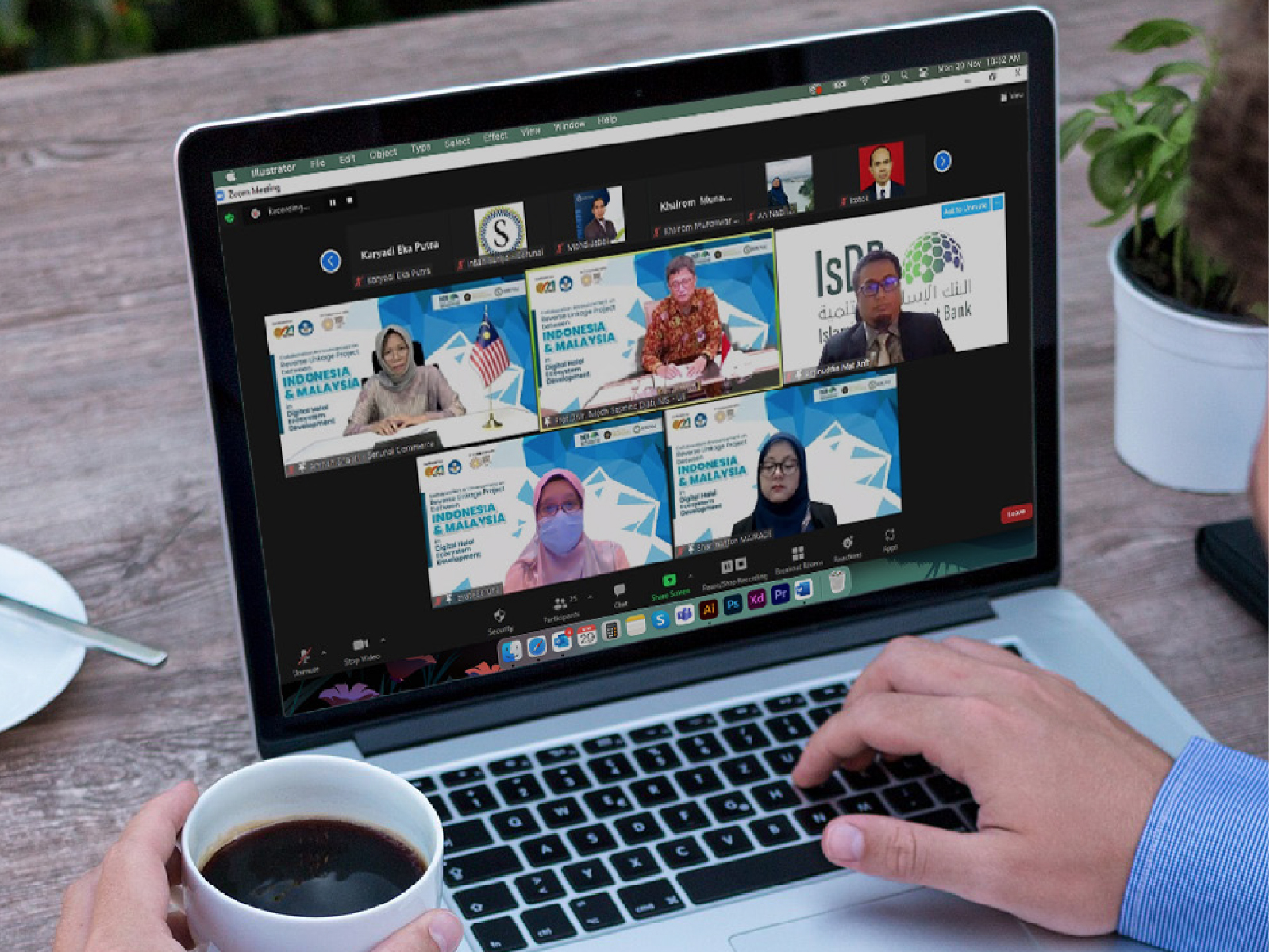Collaboration between Universitas Brawijaya & Serunai Commerce supported by the Islamic Development Bank (IsDB)
Serunai Commerce Sdn Bhd (Serunai) has been selected as one of the Malaysian experts to provide capacity development solutions to Indonesia via its National University, Universitas Brawijaya with the support of Islamic Development Bank (IsDB).
Facilitated by the Malaysia External Trade Development Corporation (Matrade), the event took place in Dubai in conjunction with Dubai Expo 2020.
In an effort to shift from being the world’s largest Halal consumer market into the world’s largest Halal producer, Indonesia developed the Indonesian Islamic Economic Masterplan 2019-2024 (MEKSI) to ensure that the foundation of the economy is irrefutably based on Islamic principles (i.e. Halal). Following that, Indonesia’s Halal Good Law was established and enforced.
As a developing country with a population of 270 million (more than 90% of Indonesian’s are Muslim) Indonesia also recognised that the development of a sustainable digital framework is key to further strengthen and empower its Halal industry.
The Halal Product Assurance Organizing Agency (BPJPH ), an agency under MORA signed an MoU with several Universities that act as Halal Centres to assist companies interested to apply for Halal Certification and to provide guidance in the development of Halal Product Assurance in Indonesia. Universities are ideal Halal Centres as they have the necessary resources that enable them to play an important role in the development of the Halal Ecosystem in the country. They not only have ample qualified expertise to operate the Halal Centre sourced from the various faculties involved in the Halal value chain but also the necessary infrastructure to play an effective role in the implementation of Halal Assurance. These roles are carried out in accordance with the Law of Republic of Indonesia Number 33 of 2014 concerning Halal Product Guarantee and Law Number 11 of 2020 on Job Creation.
Some of the critical roles carried out by these Halal Centres, among others, includes engaging in (i) research and development of new halal products and processes to further strengthen the Halal Ecosystem, (ii) producing research and knowledge publication related to elements of the Halal Ecosystem, (iii) offer facilities to test products to ensure adherence to Halal standards and (iv) producing qualified Halal auditors to support the overall Halal industry by monitoring commercial Halal stakeholders and ensuring adherence to the Halal standards in Indonesia.
As such, the enhancement of the Halal Centres will accelerate the overall improvement of the Halal Ecosystem in Indonesia. In this regard, Universitas Brawijaya (UB), an eminent National University in Indonesia has been identified to be the beneficiary in this Reverse Linkage project with Serunai Commerce from Malaysia as the provider of knowledge and expertise as well as co-financing the project with the support of Islamic Development Bank (IsDB).
To be selected as a recipient of the project is such a great honour for Universitas Brawijaya as it represents Indonesia’s contribution to the IsDB Reverse Linkage Programme, a South-South Cooperation mechanism that addresses specific development solutions in IsDB member countries, said Prof. Dr. Ir. Moch. Sasmito Djati, M.S, Vice Rector for Planning & Cooperation of Universitas Brawijaya.
UB’s acknowledged precedence of success and continued eminent role in the Halal industry since 1987 makes it the best choice to be the beneficiary in this Reverse Linkage project in order to move the Halal Ecosystem in Indonesia to the next phase of evolution by the incorporation of digital tools, said Aminuddin Mat Ariff, Regional Coordinator (Asia), Reverse Linkage, Islamic Development Bank (IsDB) responding to the questioned raised on why Universitas Brawijaya was selected.
Serunai Commerce group CEO & founder, Amnah Shaari said that they are committed to contributing and championing Halal for the world, especially with digital innovations. With booming halal demand, it is essential for halal to go digital especially when the global pandemic has accelerated the need for digital Halal platform to promote better quality assurance for all segments from food to cosmetics to pharmaceuticals and beyond,” said Amnah who is currently leading Serunai to continue empowering Halal industry players around the world to digitise their halal operation.
For further information, please visit www.serunai.com













Like (0)